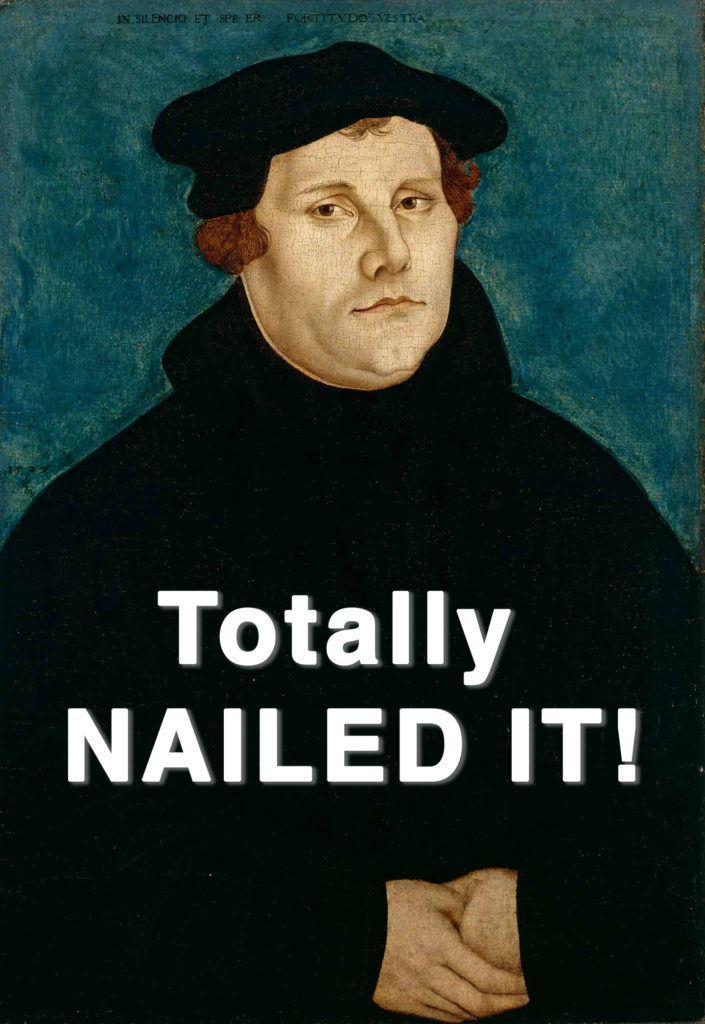
I’m writing this column on the eve of the 500th anniversary of the Protestant Reformation. And as I read article after article on the events of half-a-millennia ago it’s pretty clear to me that civility and religion haven’t been closely intertwined, at least when it comes to public discourse.
Take for instance the Luther Insulter, an online quote generator of the greatest insults from Martin Luther’s writings. For example:
God has punished you by making you incapable of understanding truth, virtue, or honor, thus handing you over to the devil to tell nothing but lies, indeed, to do all that is evil, and to upset all that is good. (Martin Luther, from Against Hanswurst.)
These words published in 1541 don’t sound all that different from insults levied between current political factions that demean, disown and demonize ideas of the other individual as uninformed, unintelligent and possibly of evil origin.
To be sure, Luther wasn’t the only Reformation figure versed in the art of the insult, he just did it better than others and now has a website dedicated to his pugilistic prowess. The sentiment expressed, however, is that the matters at hand were of life and death, heaven and hell – salvation or damnation.
Interpreting scripture, church structure, pastoral power, civic organization and even family life were all matters of extreme importance to the reformers. Some would argue their points to death — literally. Others would forge alliances between church and state that gave rise to yet more dissatisfied faithful who suffered as civil dissidents or religious minorities.
No, civility has not been a hallmark of religion or religious dialog. Even those who point to a “golden era” of religion and state — located sometime in the 1950s for modern protagonists of such an ideal — are misguided in their assessment. Speaking or writing from their position of privilege, usually white and upper class, they forget the 1950s was also an era of societal upheaval in the U.S. that included the Civil Rights struggle, the “red scare” and McCarthyism, and the ghettoization of many American cities’ urban cores.
These same people, urging “civil discourse” today, forget that it was some very strongly worded, and possibly uncivil in their eyes, discourse that brought about changes in these arenas. The Rev. Dr. Martin Luther King, Jr., was a harsh critic of many and called out their racism and the policies that supported continued segregation. Those who finally dismantled the councils investigating “un-American activities” spoke harsh words against the abuse of power.
It was only a “golden era” for those who were wealthy and white, and those who were able to protect themselves from seeing the problems developing all around them. For those suffering under policies that protected this golden era mentality, a civil response did not affect change.
And it should be remembered it was religious leaders who led the movement for reform, often using uncivil language.
As we assemble the program for the 2018 Associated Church Press convention with the theme of “Tools to Engage Tough Topics,” I’m mindful that being faithful reformers doesn’t always involve civility when the truth is at stake. Engaging contemporary issues of justice and social policy is always emotional and, for the faithful, there is precedent for how these should be addressed. And so as communicators it’s right to ask, what is the appropriate response when these policies conflict with our understanding of faith?
While I believe we should always strive to be clear and kind in our communications, and to engage in civil discourse when possible, history shows there are times and places to speak out against those we deem to be “ignorant, stupid, godless blasphemers.” (Martin Luther, from Against Latomus.)
Gregg Brekke
Executive Director, Associated Church Press
